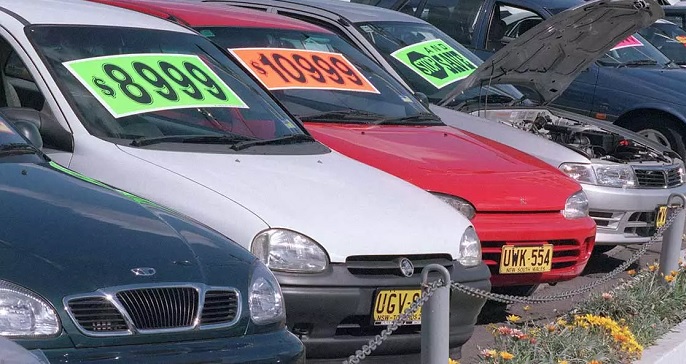Picture this. You’re looking for a used car. Your old car is bust, or it’s your first car, or maybe you’re a generous parent getting their kids out on the road. For whatever reason, you’ve decided to go looking around for a formerly loved vehicle.
And while there are plenty of dealerships and car yards around, you’ve found the exact thing you want from a private seller. You go out, give the car a look-over, decide to buy it on the spot, great!
Then a few months later someone comes knocking at your door saying they’re repossessing the vehicle. Why? Because the previous owner had used it as collateral on a loan, and then defaulted on their loan payments. The debt collectors have come for the collateral, and there’s nothing you can do about it.
It sounds like a fantasy, but it’s something that absolutely can happen when buying a used vehicle. It’s not even the worst thing that can happen. You could buy a car that was written off in an accident that’s been given just enough spit and polish to make it look good. Or you could be buying a stolen vehicle and get a knock on the door from the police.
So how do you prevent this from happening?
Luckily enough, it’s fairly simple.
You only need one tool, and that’s the best tool to avoid a dodgy used cars:
PPSR Reports
A PPSR report is your best defence against landing yourself a dodgy used vehicle. With a PPSR report in hand you’ll have enough information to make an informed decision about whether you want to buy the vehicle.
Before I get too far ahead of myself, let’s go over the basics.
What does “PPSR” stand for?
PPSR stands for the Personal Property and Securities Register. It’s a national, government register of all personal property that can be used as security on a loan. It can include vehicles, boats, and even works of art. Property and houses are not included.
A car is registered on the PPSR the second the VIN is registered in Australia. Once it’s on the register, additional details can be added to it that can be requested later.
For example, I need a car and get a car loan from a financial institute. The car itself is used as collateral on the loan — if I default on my payments, the financial institute repossesses the vehicle.
When this loan is set up, the details are registered on the vehicle’s entry on the PPSR. There’s now an online record stating that this vehicle is “financially encumbered”, meaning that there’s money attached to it that isn’t paid off yet.
What’s a PPSR report?
A PPSR report checks a vehicle’s ID (typically the VIN, or Vehicle Identification Number) against the register to see what information has been attached to it.
All vehicles registered on the PPSR contain basic information about the vehicle. This includes the make, model, production year, VIN, and engine part number. Additional details that get attached to vehicles on the PPSR include:
- Financial encumbrance, like the example above.
- Whether the vehicle was ever reported as stolen.
- Whether the vehicle was ever written off in an insurance claim. If it was, it includes detailed information such as whether it was a “repairable” or “unrepairable” write-off, and exactly what was wrong with the vehicle.

All of this information can then be retrieved from the PPSR By requesting a PPSR report. You’ll see if the vehicle is financially encumbered, if it was ever stolen, or if it’s even supposed to be on the road.
Information like engine parts and the VIN also let you check to see if the car has been stolen, broken down for parts, and put back together again.
All in all, it’s an incredibly handy tool that gives you a pretty comprehensive history of the vehicle you’re looking at.
How do I get a PPSR report?
Just visit a website like QuickRevs, enter the vehicle’s VIN OR Rego at the top, pay the nominal fee, and hit submit. You’ll get your comprehensive car history report emailed and texted to you in just minutes.
It’s really that easy! For a few dollars and a couple minutes of your time, you can prevent yourself a world of grief and headaches later. No debt collectors repossessing your vehicle, no cops knocking at your door (at least, not because of your car!). Peace of mind and self-assurance are just a few clicks away.
Don’t get caught out. If you’re looking to buy a used car, get your PPSR report today.












